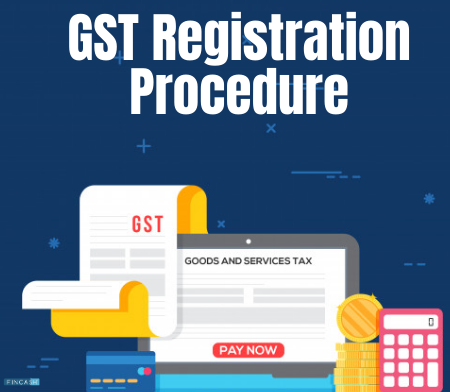Finding Dependable and Reliable Best GST Registration Services in Singapore
Finding Dependable and Reliable Best GST Registration Services in Singapore
Blog Article
From Beginning To End: The Ultimate Roadmap to GST Enrollment for Businesses Looking For Financial Security
Browsing the intricacies of Product and Solutions Tax Obligation (GST) enrollment is a critical step for organizations pursuing economic security. From recognizing the essential concepts of GST to adhering to post-registration standards, the process can appear daunting initially glimpse. Breaking down the roadmap into workable actions can enhance the registration journey for services looking to enhance their monetary standing. Allow's explore the essential elements that comprise this utmost roadmap and discover exactly how each phase adds to laying a strong foundation for monetary success.
Comprehending GST Essentials
Looking into the essential concepts of Item and Provider Tax Obligation (GST) is necessary for gaining an extensive understanding of its implications on companies and the economic climate. GST is a value-added tax obligation imposed on the majority of items and solutions for domestic usage. It has actually changed several indirect taxes that existed in the pre-GST period, improving the tax obligation framework and boosting simplicity of doing company in India. Under the GST system, both services and items are strained at a details price, which is identified based on their category. If their yearly turnover exceeds the threshold limit set by the government, businesses are required to register for GST. Input Tax Obligation Credit Score (ITC) is a substantial function of GST, enabling organizations to claim credit history for taxes paid on inputs, lowering the total tax burden. Recognizing the basics of GST is important for companies to adhere to tax laws, handle their financial resources efficiently, and contribute to the nation's financial growth by taking part in a transparent tax system.
Eligibility Criteria for Registration
As of the existing laws, the threshold limitation for GST registration is a yearly aggregate turnover of 40 lakhs for businesses running within a state, except for unique category states where the limit is 20 lakhs. Additionally, specific companies are called for to register for GST regardless of their turnover, such as interstate suppliers, laid-back taxed persons, and organizations responsible to pay tax under the reverse cost mechanism. It is essential for organizations to thoroughly examine their turn over and deal kinds to identify their GST enrollment obligations properly.
Records Required for Registration
Having actually satisfied the qualification standards for GST registration, services need to currently guarantee they have the requisite records in area to proceed with the enrollment process successfully. The records required for GST registration typically include proof of organization constitution, such as partnership act, registration certification, or consolidation certificate for various kinds of organizations. In addition, companies require to offer records establishing the major location of organization, such as a rental contract or electricity bill.
Step-by-Step Enrollment Process
Starting the GST registration process includes a series of organized actions to make sure a compliant and seamless enrollment for companies. The initial have a peek at this website action is to go to the GST website and fill in the registration type with accurate details of the business entity. Following this, the applicant gets a Momentary Reference Number (TRN) which is utilized to return to the application procedure if it's not completed you can check here in one go.
Next, all required documents as per the checklist given by the GST portal need to be submitted. These documents typically consist of proof of service address, registration and identification evidence of promoters, monetary statements, and service entity's PAN card.

Post-Registration Compliance Standards

Final Thought
To conclude, services looking for monetary stability needs to understand the essentials of GST, fulfill eligibility standards, collect essential records, adhere to the step-by-step enrollment process, and conform with post-registration guidelines - Best GST registration services in Singapore. By sticking to these blog here actions, services can guarantee compliance with tax obligation regulations and keep financial security in the future
In addition, certain services are called for to sign up for GST regardless of their turnover, such as interstate distributors, laid-back taxable individuals, and companies accountable to pay tax under the reverse charge system.Having met the qualification standards for GST enrollment, services must currently guarantee they have the requisite records in place to proceed with the enrollment process efficiently. The documents required for GST registration commonly include evidence of service constitution, such as partnership act, enrollment certification, or incorporation certificate for different kinds of businesses. Furthermore, businesses require to provide papers developing the principal place of organization, such as a rental agreement or electrical power expense.Commencing the GST enrollment procedure involves a collection of organized steps to ensure a compliant and seamless registration for services.
Report this page